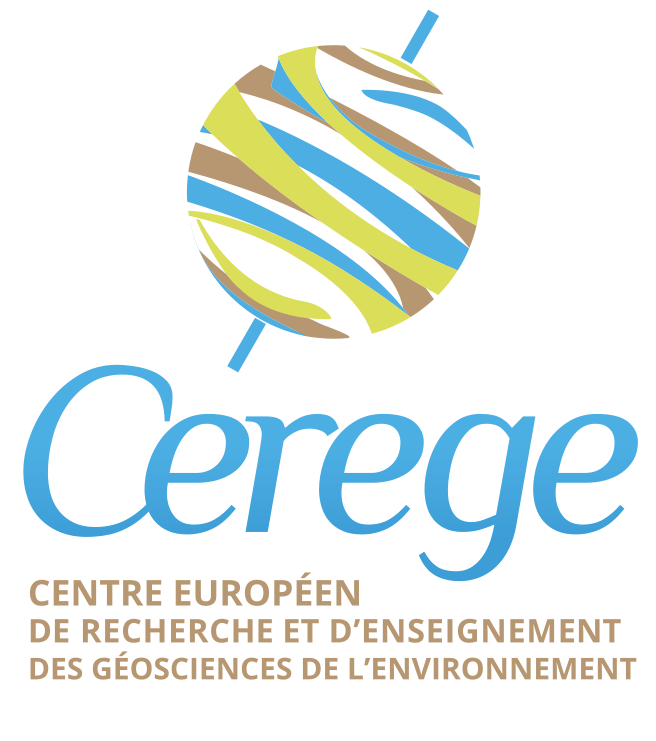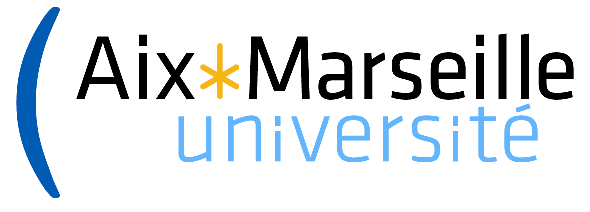Syllabus
The academic year in France is organize into two semesters, exchange students can participate in either one of the semesters or the whole year.
The International Master in Geosciences program is as much as possible taking advantage of the scientific environment of CEREGE in order to give students a hands-on experience with state-of-the-art research facilities.
Important note (2023/2024) The STPE Master is currently at the transition between two curricula (new one to start in Sep. 2024). As a consequence, information on AMU institutional websites reflects the current curriculum, which will be phased out at the end of the academic year. Information on the future curriculum is provided below.
Master 1
First Semester (S1)
From September to January
This semester (30 ECTS) is a common core curriculum between several programs of the STPE Master (including the IMG curriculum). For that reason some units are taught in French, but all teaching supports are in English.
It includes an integration field trip in the Ubaye valley (Alps), which is then valorized in the form of a Project-Based Learning module (APP1).
| Teaching unit | ECTS |
|---|---|
| Major environmental challenges | 2 |
| Internal geodynamics | 3 |
| External geodynamics | 3 |
| Geophysics and natural resources | 3 |
| Statistics | 3 |
| Geographical Information Systems | 3 |
| Geochemical tracers and chronometers 1 | 3 |
| Rock and mineral characterization techniques | 3 |
| Field trip | 5 |
| Project-Based Learning module (APP1) | 2 |
Second Semester (S2)
From February to June
This semester (30 ECTS) is taught fully in English and includes two key elements in the training program.
- A 2-month research internship
- A Project-Based Learning module (APP2), involving immersion in a CEREGE technical platform.
| Teaching unit | ECTS | |
|---|---|---|
| Spatial data: from field to 3D modeling | 4 | |
| Geosciences data processing | 3 | |
| Research internship | 6 | |
| APP2 Project driven learning (experimental approaches) | 3 | |
| Geosciences in the Anthropocene | 2 | |
| Geochemical tracers and chronometers 2 | 4 | |
| Climatic system | 4 | |
| Earth Surface Dynamics | 4 | |
Master 2
First Semester (S3)
From September to January
The first semester will comprise the following teaching units for a total of 30 ECTS.
Field trip
(6 ECTS) Currently offered as a at-sea practical sessions aboard the Antedon II oceanographic research ship in the coastal areas of Provence, followed by a semester-long project focused on the analysis of collected samples.
Debates in Geosciences
[TC5] (2 ECTS) A practical course and seminars on focusing on the presentation of scientific information, through article analysis and oral presentations.
Project-driven learning
(4 ECTS) A semester-long personal project aimed at developing skills in data processing and numerical modeling for Earth Science research.
Quaternary Geochronology
(3 ECTS) Presentation of the various isotopic tools and approaches used to construct absolute chronologies for Quaternary events and processes (cosmogenic nuclides, radiocarbon, U-series, luminescence, …)
Remote sensing of Earth and Planetary surfaces
(3 ECTS) Introduction to remote sensing applications in Earth Sciences, with a focus on practical activities involving various types of satellite imagery and advanced geomatics approaches.
Optional unit
(3 ECTS) Choose one of these two units, according to your interests
Carbon cycle / carbonates / climate
Presentation of the global scale coupling between carbon cycle, geodynamics and carbonate sedimentary systems, and its implications on climatic evolution at different timescales.
Faults : from the outcrop to plate boundaries
Investigation of the active deformation processes along fault systems at different scales, with a focus on using morphotectonic and paleoseismological approaches.
Advanced Topics in Geosciences
(9 ECTS) A choice of 9 small workshops (from a total of 12), enabling students to build their own personal career path according to their areas of interest. Each topic is a sequence of 3 sessions on a cutting-edge area of Geosciences, taught by a specialist in the field. Topics cover the following areas:
- Paleoceanography
- Meteorites and Impact Processes in the Solar System
- Continental Quaternary Paleoenvironment
- Planetary Magnetic Fields
- Ice Core Records and Glaciers Evolution
- Active tectonics and paleoseismology
- Glaciers Dynamics and Sea Level
- Tectonic and Climatic Influences on Landscape Evolution
- Interaction Between Climate and Ecosystems
- River Deltas in the Anthropocene and the Future Outlook
- Past Water Cycle and Vegetation Dynamics
- Erosion of Continental Surfaces, Soil Ressources and Anthropization
Second Semester (S4)
From February to July
The second semester is entirely devoted to a full-time 5 months professional internship. It can focus on a research project in an academic setting at CEREGE or another university, as well as with our industrial partners.
Additional learning opportunities
The IMG program builds on AMU institutional environment and international collaboration networks. Numerous opportunities to take part in innovative teaching and field schools, in addition to the standard curriculum, are available.
CIVIS
The CIVIS alliance is a network of European universities of which AMU is a founding member. Notably, academic exchange opportunities for teaching and fieldwork are regularly offered via Blended Intensive Programs (BIP) and CIVIS courses.
AMU Institutes
AMU institutes are innovative cross-disciplinary structures within AMU that enable the creation of interdisciplinarity synergies, and offer numerous training programs for Master’s students.
- ITEM Institute for the environmental transition in the Meditteranean
- OCEAN Institute for Ocean Sciences
- ORIGINES From the formation of planets to the emergence of life
- ARKAIA Institute of Mediterranean Archaeology

